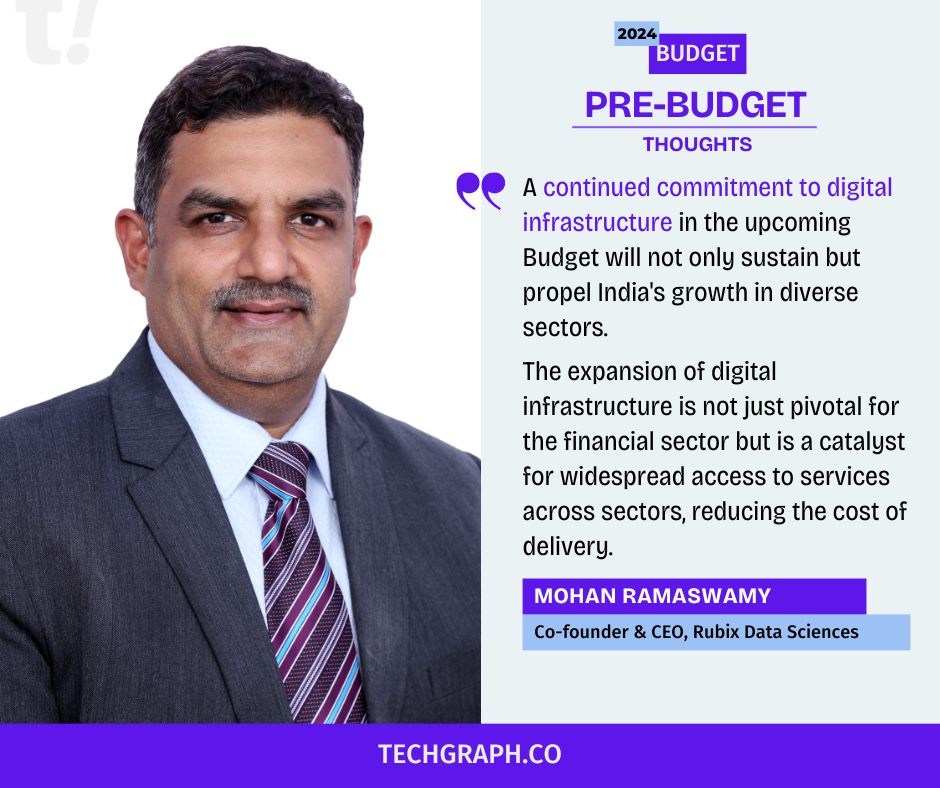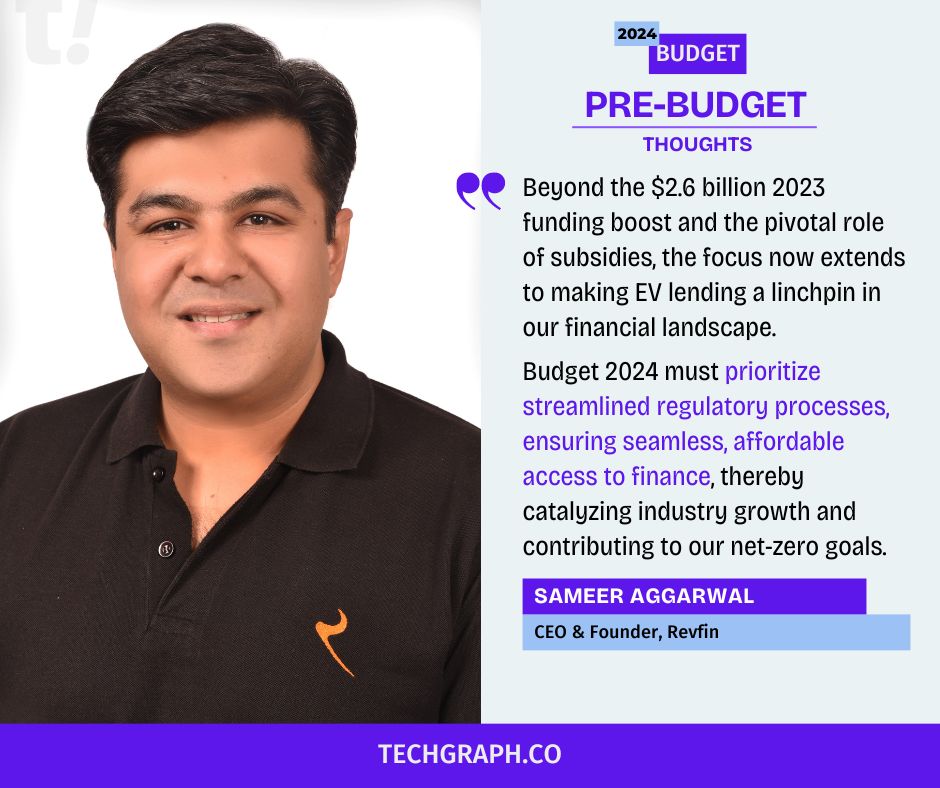With India’s Finance Minister Nirmala Sitharaman set to deliver the interim budget on Feb 1, 2024, leaders in the finance and fintech sector are voicing their expectations for a transformative budget that not only addresses immediate challenges but sets the stage for a digital revolution and inclusive financial growth.
Here’s a breakdown of their perspectives:
Akash Sinha, CEO & Co-Founder, Cashfree Payments

In the Union budget 2024-25, the government should further push for initiatives that will focus on boosting the adoption of digital payments in tier 2 and beyond regions. Policies should incentivize the creation of a fertile environment for fintech startups to innovate and build products and solutions that will be more inclusive, and adaptable for both consumers and businesses.
I also expect the introduction of regulatory frameworks that will help curb digital fraud and build a safer and more secure digital payment environment, reinforcing the trust of users in digital transactions. There is a call for the implementation of a standardized KYC framework across all financial services, aiming to enhance efficiency and promote financial inclusion, in a secure way. Overall, the budget should also announce some provisions to ease the financial burden on fintechs and provide tax-saving benefits to startups in the sector.
Yuvraj Shidhaye, Founder and Director, TreadBinary

As the finance industry looks forward to the Union Budget FY24-25, our aspirations revolve around driving technological advancement and fostering inclusive growth. Priority lies in initiatives to develop the workforce, especially in equipping the youth with digital skills.
Empowering MSMEs in Tier-II and beyond with robust fintech solutions is crucial for broader economic empowerment. Strengthening cybersecurity frameworks is vital to ensure secure digital transactions and maintain user trust. Expanding fintech services into underserved regions is a priority to enhance financial inclusion nationwide.
Stringent measures against digital fraud are imperative to safeguard digital payment ecosystems. This budget marks a pivotal moment for the fintech industry. With strategic support and allocations, it can pave the way for a thriving environment where fintech innovation propels India’s economic progress.
Mohan Ramaswamy, Co-founder and CEO, Rubix Data Sciences

From the groundbreaking Aadhaar digital identity to the success of the Unified Payments Interface (UPI), the JAM trinity, and Co-WIN for the COVID-19 vaccination program, India’s journey in building digital public infrastructure has been a game-changer for the country. Achieving 80% financial inclusion in just 6 years, a feat projected to take 47 years as per World Bank estimates, showcases our innovation capabilities. Today, several countries around the world are looking to India’s Digital Public Infrastructure (DPI) to help them digitize their government services.
Therefore, a continued commitment to digital infrastructure in the upcoming Budget will not only sustain but propel India’s growth in diverse sectors. The expansion of digital infrastructure is not just pivotal for the financial sector but is a catalyst for widespread access to services across sectors, reducing the cost of delivery. Enhancing financial resource allocation to the Open Network for Digital Commerce (ONDC) will widen digital market access to SMEs around the country. Another key initiative, the Open Credit Enablement Network (OCEN), will drive credit availability for the smallest borrowers.
Sameer Aggarwal, CEO and Founder, Revfin

As we anticipate Budget 2024, India’s electric vehicle (EV) sector beckons a strategic shift towards holistic growth aligned with the net-zero aspirations of Bharat. Beyond the $2.6 billion 2023 funding boost and the pivotal role of subsidies, the focus now extends to making EV lending a linchpin in our financial landscape. Budget 2024 must prioritize streamlined regulatory processes, ensuring seamless, affordable access to finance, thereby catalyzing industry growth and contributing to our net-zero goals.
The ‘Make in India’ initiative should further be underscored, emphasizing an ecosystem where quality, innovation, and cost-effectiveness prevail. Comprehensive policies are imperative, intensifying R&D investments, expanding charging infrastructure, and nurturing indigenous battery manufacturing. Recognizing the pivotal role of auxiliary sectors like charging solutions and battery technology, collaborative initiatives involving government, industry, and FinTech entities are crucial for affordability, innovation, and establishing India as a global hub for sustainable mobility.
In Budget 2024, intertwining financial support with regulatory facilitation presents a unique opportunity to propel India towards a greener, sustainable future, fostering economic growth and technological advancement in the EV sector.




